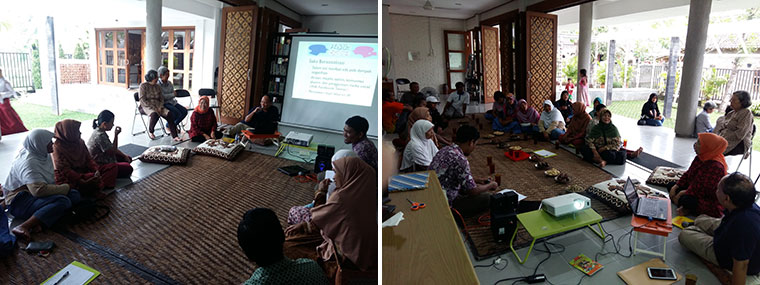
The Indonesian Consumers Foundation (YLKI) had an opportunity to speak with members of the Titian Foundation (Titian) Microfinance Programme on consumer behavior.
With massive advertising done by producers, consumers are bombarded with a huge volume of tempting merchandise. As for a remote village like Bayat, Klaten, the situation is worsened by the persistence of the infamous retail creditors or ‘bank percil’ as they are popularly called. By persuading people to take their loans, it makes it harder for consumers to avoid unnecessary spending sprees or debt. The result is that consumers are often inadvertently trapped with too much debt.
These debts, as it turns out however, are not only used for improving productivity, but also for covering communal expenses. Indonesia’s communal society, renders some drawbacks too. There is unspoken social punishment, especially for people living in a small village, that if they don’t participate or hold customary community activities, such as visiting the sick or social group gatherings ‘arisan’. Being looked down on or outcast is a more terrifying prospect to the villagers and to their own detriment, and will therefore do all they can to obtain such social recognition.
Lily Kasoem, CEO and Founder of Titian, at every opportunity relentlessly advises parents of the scholarship recipients, to give their children some freedom until they can plant their feet firmly on the ground. However, what often happens is that these children are immediately tethered with the premature burden of having to repay their parents’ debt as soon as their period of studying is completed.
This kind of discussion allows people to address their issues and to find solutions that will benefit for the whole community. For it to succeed it needs to be done together, in unanimous agreement, starting with their own surrounding neighbors and later with the larger community.

